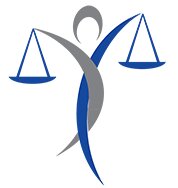Best Defamation Lawyers in San Fernando
Share your needs with us, get contacted by law firms.
Free. Takes 2 min.
List of the best lawyers in San Fernando, Trinidad and Tobago
About Defamation Law in San Fernando, Trinidad and Tobago:
Defamation law in San Fernando, Trinidad and Tobago deals with protecting the reputation and character of individuals and businesses from false statements that harm their reputation. Defamation can take the form of libel (written statements) or slander (spoken statements).
Why You May Need a Lawyer:
You may need a lawyer for defamation cases in San Fernando, Trinidad and Tobago if you have been falsely accused of making damaging statements about someone else or if someone has made false statements about you that are harming your reputation. A lawyer can help you navigate the legal process, gather evidence, and represent you in court.
Local Laws Overview:
In San Fernando, Trinidad and Tobago, defamation laws are outlined in the Defamation Act. To prove defamation, the statement must be false, published to a third party, and have caused harm to the individual or business's reputation. Truth is a defense against defamation claims, but malicious intent can still be considered defamatory.
Frequently Asked Questions:
What is the difference between libel and slander?
Libel refers to written defamatory statements, while slander refers to spoken defamatory statements.
Is it necessary to prove damages in a defamation case?
In Trinidad and Tobago, it is not always necessary to prove damages in a defamation case. The court may presume damages in certain circumstances.
Can an opinion be considered defamatory?
An opinion generally cannot be considered defamatory as it is a subjective expression. However, if the opinion is presented as a fact or based on false information, it may be considered defamatory.
Can a business sue for defamation?
Yes, businesses can sue for defamation in San Fernando, Trinidad and Tobago if false statements have been made that harm the business's reputation.
How long do I have to file a defamation lawsuit?
In Trinidad and Tobago, the limitation period for filing a defamation lawsuit is typically one year from the date the defamatory statement was made.
Can a public figure sue for defamation?
Public figures have a higher burden of proof in defamation cases as they must prove actual malice or reckless disregard for the truth on the part of the defendant.
What are the potential defenses against a defamation claim?
Some potential defenses against a defamation claim include truth, privilege, fair comment, and consent.
Can social media posts be considered defamatory?
Yes, social media posts can be considered defamatory if they meet the criteria of a defamatory statement as outlined in the law.
What is the role of the court in a defamation case?
The court will weigh the evidence presented by both parties to determine if defamation has occurred and assess any damages that may be awarded.
Should I apologize if I am accused of defamation?
An apology may help mitigate damages in a defamation case, but it is essential to consult with a lawyer before making any statements that could be construed as an admission of guilt.
Additional Resources:
If you are in need of legal advice on defamation in San Fernando, Trinidad and Tobago, you can contact the Trinidad and Tobago Law Association for referrals to experienced defamation lawyers in the area.
Next Steps:
If you believe you have been a victim of defamation or are facing a defamation claim, it is essential to seek legal advice as soon as possible. Contact a defamation lawyer in San Fernando, Trinidad and Tobago to discuss your options and determine the best course of action to protect your rights and reputation.
Lawzana helps you find the best lawyers and law firms in San Fernando through a curated and pre-screened list of qualified legal professionals. Our platform offers rankings and detailed profiles of attorneys and law firms, allowing you to compare based on practice areas, including Defamation, experience, and client feedback.
Each profile includes a description of the firm's areas of practice, client reviews, team members and partners, year of establishment, spoken languages, office locations, contact information, social media presence, and any published articles or resources. Most firms on our platform speak English and are experienced in both local and international legal matters.
Get a quote from top-rated law firms in San Fernando, Trinidad and Tobago — quickly, securely, and without unnecessary hassle.
Disclaimer:
The information provided on this page is for general informational purposes only and does not constitute legal advice. While we strive to ensure the accuracy and relevance of the content, legal information may change over time, and interpretations of the law can vary. You should always consult with a qualified legal professional for advice specific to your situation.
We disclaim all liability for actions taken or not taken based on the content of this page. If you believe any information is incorrect or outdated, please contact us, and we will review and update it where appropriate.










